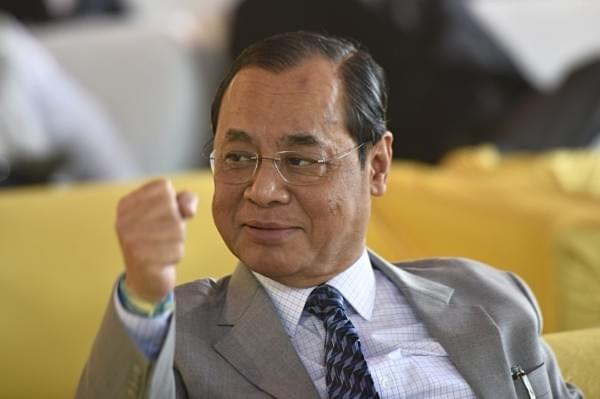Insta
‘Transparency And Accountability Go Hand-In-Hand’: SC Says Office Of Chief Justice Of India Comes Under RTI
IANS
Nov 13, 2019, 03:38 PM | Updated 03:38 PM IST
Save & read from anywhere!
Bookmark stories for easy access on any device or the Swarajya app.


The office of Chief Justice comes under the Right to Information (RTI) Act, said the Supreme Court on Wednesday (13 November).
Chief Justice Ranjan Gogoi, Justices Sanjeev Khanna and Deepak Gupta pronounced that the Chief Justice Office is as a public authority under RTI, and upheld the Delhi High Court verdict of 2010.
The apex court has passed three judgments -- one by Chief Justice Ranjan Gogoi and Justices Sanjiv Khanna and Deepak Gupta, and two separate concurring judgments by Justices N V Ramana and D Y Chandrachud.
The court said, "Transparency and accountability go hand-in-hand, and the Chief Justice office comes under RTI regime."
Justice Khanna observed, "transparency only strengthens judicial independence".
Through this judgement, the apex court has junked the appeal filed by top court Secretary General challenging the Delhi High Court order in holding office of the Chief Justice amenable under the RTI.
The judgement of the apex court talks about conditional disclosure, on case to case basis. The top court also passed observation on right to privacy, and ruled that proactive disclosure by judges would further the judiciary's independence.
(This story has been published from a wire agency feed without modifications to the text. Only the headline has been changed.)




